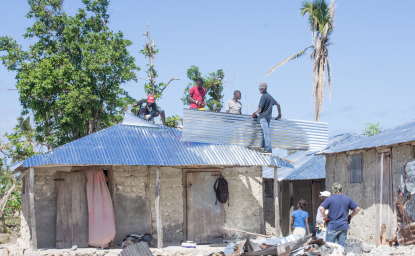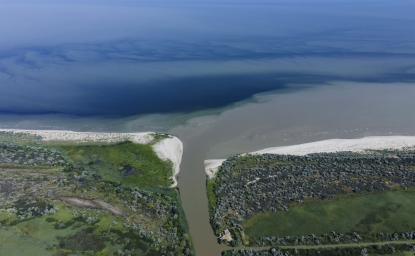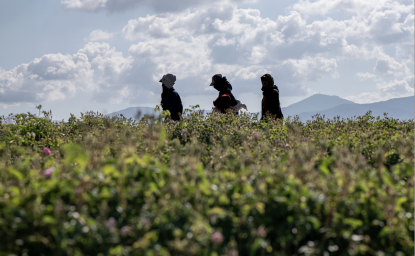Building Peace Through Environmental Cooperation
Worldwatch's State of the World 2005 Includes Chapter on Environmental Peacemaking
Worldwatch's State of the World 2005 Includes Chapter on Environmental Peacemaking
A growing array of initiatives—including peace parks, shared river basin management plans, regional seas agreements, and joint environmental monitoring programs—blend ecology and politics in the service of peace. Environmental peacemaking uses cooperative efforts to manage environmental resources as a way to transform insecurities and create more peaceful relations between parties in dispute. As such initiatives become more frequent and gain momentum, they may transform both how people approach conflict and how people view the environment.
As a peacemaking tool, the environment offers some useful—perhaps even unique—qualities that lend themselves to building peace and transforming conflict: environmental challenges ignore political boundaries, require a long-term perspective, encourage local and nongovernmental participation, and extend community building beyond polarizing economic linkages. These properties sometimes make cross-border environmental cooperation difficult to achieve. But where cooperation does take root, it may help to enhance trust, establish cooperative habits, create shared regional identities around shared resources, and establish mutually recognized rights and expectations.
Recognizing the potentially critical linkages between the environment and insecurity, U.N. Secretary-General Kofi Annan has called for integrating environmental contributions to conflict and instability into the U.N.'s conflict prevention strategy and the deliberations of his High-Level Panel on Threats, Challenges, and Change. Surprisingly, however, relatively little is known about the best design for environmental peacemaking initiatives or the conditions under which they are most likely to succeed. Without better knowledge and a stronger commitment to study current efforts, the international community may be missing powerful peacemaking opportunities in the environmental domain.
The 2005 edition of Worldwatch's annual State of the World report, Redefining Global Security, examines the underlying sources of global insecurity, including the perilous interplay among poverty, infectious disease, environmental degradation, and rising competition for resources. ECSP Director Geoffrey Dabelko co-authored "Building Peace Through Environmental Cooperation" with Alexander Carius and Ken Conca; it is available from Worldwatch here.

The Environmental Change and Security Program (ECSP) explores the connections between environmental change, health, and population dynamics and their links to conflict, human insecurity, and foreign policy. Read more



